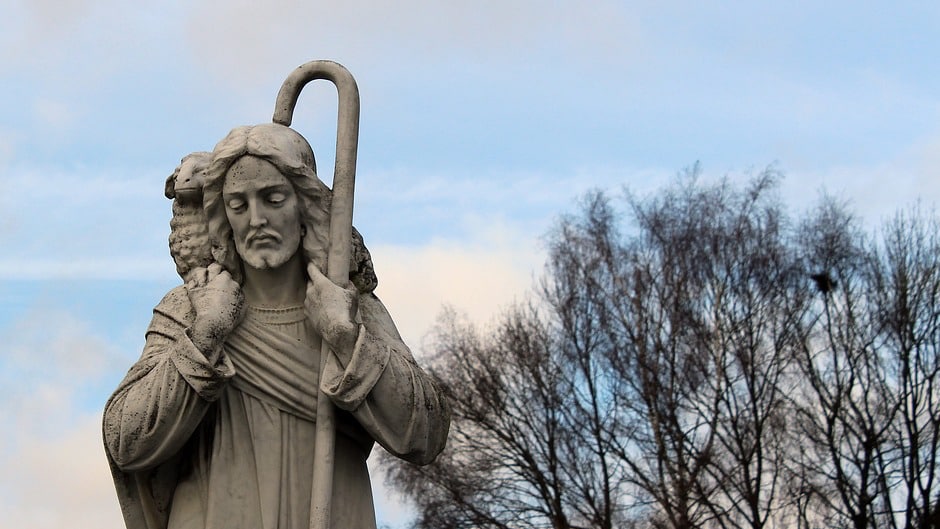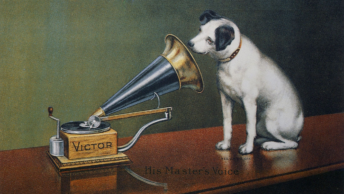A question sometimes used in personality surveys or psychological tests is, “If you had to be a certain type of animal, what kind would you choose?” I would think a common choice might be a horse—fast, sleek, and beautiful; still another choice might be a lion—strong, proud, and majestic. Many people might choose an eagle—noble, handsome, and able to soar up in the sky. Other popular choices might be dogs, which are loyal and protective, or dolphins, which are playful and intelligent. I suspect that relatively few people, however, would want to be sheep. Being described as “sheep” has a negative connotation for us today, because these animals are frequently characterized as docile, passive, and even dumb, especially in the sense of being clueless targets or victims. However, there is another, more favorable characteristic of sheep: more than many other animals, they recognize the need for someone to care for them. We are called to be “sheep” in this positive sense—acknowledging and acting upon our need for Jesus Christ.
The Gospel of Mark (6:30-34) shows Our Lord’s deep concern for all people. When the apostles returned from their missionary journeys, He took them off alone so they could rest. However, many others followed along, for they also needed Jesus. We’re told that He pitied the vast crowd, for “they were like sheep without a shepherd,” and He responded to them with great love. Sheep are capable of recognizing their master’s voice, and can find that particular voice in a crowd. We need to be able to find the voice of Jesus in the midst of a confusing multitude or cacophony of sounds in today’s world. Through the prophet Jeremiah (23:1-6), the Lord warns us that there are many false shepherds today—even within the Church itself, as we’ve seen to our anger, horror, and shame over the past twenty years. Along with predatory and abusive priests and criminally negligent bishops, there’ve been many other false shepherds who’ve abused their authority over the young, including ministers in other religions, youth counselors, coaches, vast numbers of public school teachers, celebrities, political figures, relatives, and even parents and step-parents. Trusting and unwary people, especially the young but oftentimes the elderly as well, are also sometimes in danger from certain organizations or cults, scam artists, and particularly the false ideas or values our society promotes.
Because sheep tend to follow loyally those shepherds they’re comfortable and familiar with, it’s important for us to give our allegiance to the true Shepherd from the very beginning, and to teach others to do likewise—for later on it can be quite difficult for us to change our false thinking, overcome our bad habits, give up a materialistic or self-centered lifestyle, or recover from the wounds inflicted by a shepherd who proved unworthy of our trust. St. Paul (Ephesians 2:3-18) tells us that though we were once far from God because of our sins, we have been brought near through the Blood of Christ. We must make sure this gift of salvation is not ruined or corrupted by false shepherds, nor wasted by our own stubbornness, sinfulness, or pride.
Seventy years ago, during the Korean War, some Americans had just been captured by the Communists, and were suffering terribly from hunger, exhaustion, and the cold temperatures. They had been housed overnight in a group of crude shacks, knowing that a long and difficult march to a prison camp awaited them; a lot of the men were convinced they wouldn’t be able to make it. Then one of their fellow prisoners appeared in the doorway of the shack—as it happened, a religious minister back in civilian life. He announced, “Boys, I’ve got great news for you—listen.” The prisoners all thought, “What possible ‘great news’ could he have for us?” but they gave him their attention. The man said aloud, “The Lord is my shepherd—there is nothing I shall want,” and he recited the entire 23rd Psalm, as if it were God’s personal message to everyone there. One of the survivors later said, “I’m telling you, you could hear the silence. I never felt so moved in all my life. Then the guards came—it was get going or die. Those men rose like they had new strength. I can’t tell you where they got it from. They marched and they stuck it out” (Anthony Castle, More Quips, Quotes, & Anecdotes, p. 395).
Jesus is our Shepherd. This means He will protect us and give us the strength we need each day; it also means we have the responsibility of following Him and not letting ourselves give up, despair, or be led astray by false shepherds. We can be deceived or misled more easily than we think—certainly in little ways, and perhaps even in big ones. For instance, the good habits and virtues we now possess can, if we’re not careful, grow weak, fall into disuse, and eventually disappear. Or perhaps we never get around to acting on our good impulses and our inspirations from God, and it may be that all those worthwhile things we were going to do one day for God and our neighbor somehow never get done. It’s also possible for us to absorb some of society’s false values without realizing it. For example, we might overemphasize personal independence and pride, while downgrading the ideas of sacrifice and obedience to God, or like so many other people today, we might become critical and judgmental toward others, rather than accepting and praying for them.
We must be on our guard; we must rely totally on Christ. This means, among other things, valuing our religion and defending it. Jesus wants us to influence society, but this can’t happen unless we take our faith seriously. Relying on Christ also means taking some time, as Jesus suggested to the apostles, for prayer and reflection and spiritual rest. For most people life is busier and more confusing than ever—so it’s essential that we carve out time in our daily schedules to seek God’s guidance and thank Him for His gifts. Relying on Christ means trying to do all things and make all our decisions in light of the question, “What would Jesus want me, as a member of His flock, to do?”
There’s nothing wrong with being as beautiful as a horse, as majestic as a lion, as noble as an eagle, as loyal as a dog, or as intelligent as a dolphin; these are all good things and worthy goals in life. However, we must be like sheep in at least this sense: recognizing and responding to our Master’s voice. Christ is the true Shepherd—and the security we seek can only come from following Him.






